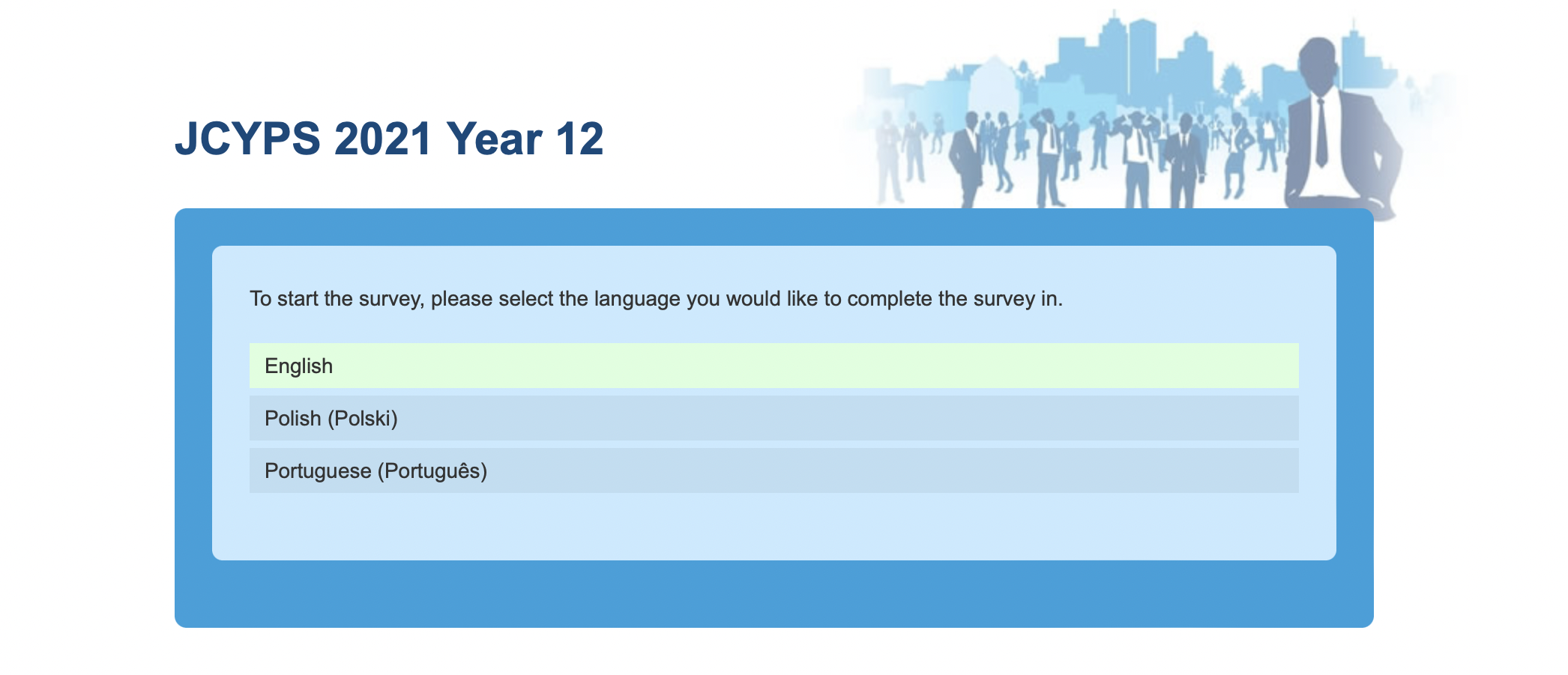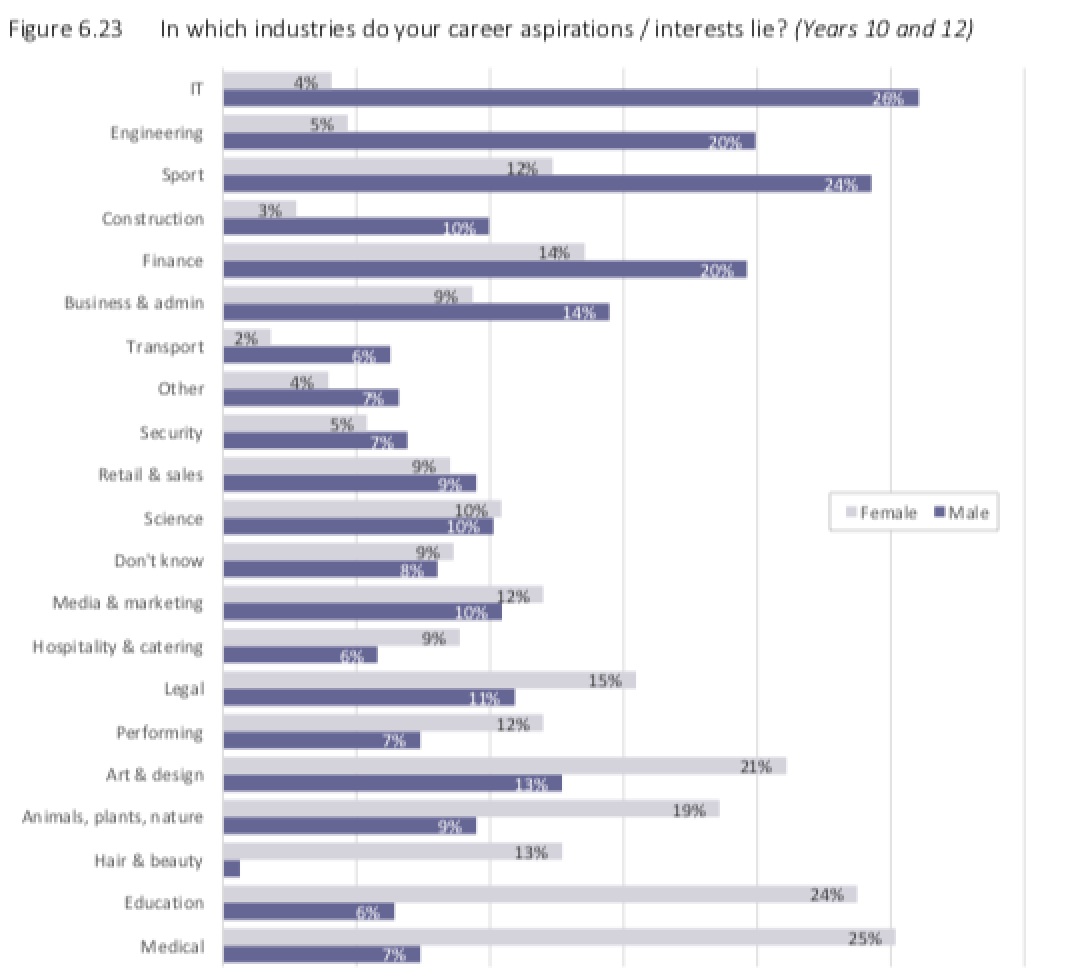


Having recently filled in the Children and Young People's Survey, I'm shocked by the difference between females and males about their career aspirations.
Are our career aspirations defined from a young age? Do the media influence our perception on gender career stereotypes? Are the government and schools doing enough to encourage students into 'opposite sex' dominated careers?
The Jersey Children and Young People’s Survey gives children in education in Years 4, 6, 8, 10 and 12 the opportunity to describe their views and opinions across multiple topics.
It is an anonymous survey that was run in the autumn school term in 2021. This year a total of 4,361 students took part in the survey which means that a clear snapshot of life as a child growing up in Jersey was attained.
The survey was conducted by Statistics Jersey but was consulted on by different stakeholders across the government, to ensure that the key topics were covered and that it would produce useful data.

Pictured: The survey covered four main sections which were: demographics and household, physical wellbeing, mental well-being and aspirations, and health related behaviours.
Recently, the results report from the survey has been released and there was a couple of sections from the data that surprised me; but in particular one thing that really struck me was this element on page 71, where the differences between girls and boys is really stark.
There was a significant difference between male and females about where their interests lie. For example, males were a lot more likely than females to be interested in IT, engineering and sport, whereas females were more interested in medical, education and hair and beauty.
These results shocked me, we are living in the 21st century and there is still a large split between genders. However, I don't think students are to blame.

Pictured: The statistic from the CYP result report regarding career aspirations of Year 10 and Year 12.
Despite the ongoing efforts made by the professional world to create a more balanced work force and address the lack of diversity in male-or-female-dominated roles. These findings show that the younger generation are still inheriting outdated gender job stereotypes. Why is this?
In the past few years there has been lots of talk encouraging more women to be in STEM (science, technology, engineering, maths). However, the data here shows that females aren’t interested as much in those industries, so why is there so much pressure placed on females to be in STEM when they are perhaps just not interested?
On the other hand, I believe that females still feel undermined by males in industries like IT and sport as it is currently such a male-dominated career. That could mean that governments, schools etc. aren’t doing enough to support women aspiring in these industries.
Male dominated industries such as IT, engineering and sport still have very stereotypical environments which make it difficult for women to excel or to pursue that career.
Less than 1% of males said that their interests lie in hair and beauty. Why is this so low? Maybe we have been so focused on encouraging women to be in male dominated industries we haven’t thought about men in female-dominated careers.
According to https://professionalbeauty.co.uk over the past five years LCBT (London College of Beauty Therapy) has seen just 21 men graduate from its Beauty Therapy and Media Make-up courses - this is an extremely low number!

Pictured: One way to break down gender career stereotypes would to have career workshops and talks from leaders in different industries of both genders.
I think that schools and the government need to do more to break/stop these gender career stereotypes. This could be done through career workshops and talks from both males and females in undermining industries.
As well as visits from industry leaders to talk about how companies are actively working to address gender stereotypes and provide equal opportunities within their industry and workplace.
Unconsciously through our early learning experiences, gender stereotypes are present in our everyday life from television to our role models. Bob is a builder, Sam is a fireman, and Pat is a postman.
Female characters are under-represented in cross-dominated industries. This sets our perceptions from an early age and shapes and influences our decisions regarding our expectation of gender differences.
In my opinion, we should be doing more to present gender neutral role models so we can stop this stereotype being persistent from an early age.
Children’s toys also had a role to play in forming a gender career stereotype from a young age. Toys' marketing would exploit gender stereotypes by funnelling cooking sets and barbie dolls towards girls, and construction kits and action figures to boys.
These early stereotypes limits children’s interests and structures what they think they are capable of achieving in the future.

Pictured: Do social media role models influence our interests?
With more use of social media, these biases continue into younger teens with influences targeting the different genders. Males may be influenced by football players online such as Lionel Messi & Cristiano Ronaldo, but could you name 5 female footballers?
Females may be influenced by models such as Naomi Campbell, but could you also name 5 male models? Society cannot expect us to not have gender stereotypes when everything around us is somewhat gender stereotypical.
Why would a male aspire to be a model or designer, when male fashion/ models barely receive any exposure in the media compared to female models. This could be said for aspiring female footballers as well.
We all hear a lot about Jeff Bezos, Elon Musk and Bill Gates - world leading male business billionaires, but nothing about leading business women.
The media should do a better job of giving more exposure and publicity to genders in cross-dominated fields. They should celebrate female footballers, male beauticians, female business leaders and male dancers.
Otherwise we have no chance for changing these gender job stereotypes that are displayed in our society. If no changes happens in schools, media, and the government then there is no hope in changing the views of the next generation.
The data accumulated from the CYP Survey has shown that career stereotypes are still present in society, schools and work. Changes need to be made to diminish these gender career perceptions.
Children need to be more educated, the media needs to be more inclusive and schools and the government needs to support children’s career aspirations more!
Lacey Le Boutillier (14) is a Beaulieu Convent School student on Trident work experience with Express.
Comments
Comments on this story express the views of the commentator only, not Bailiwick Publishing. We are unable to guarantee the accuracy of any of those comments.